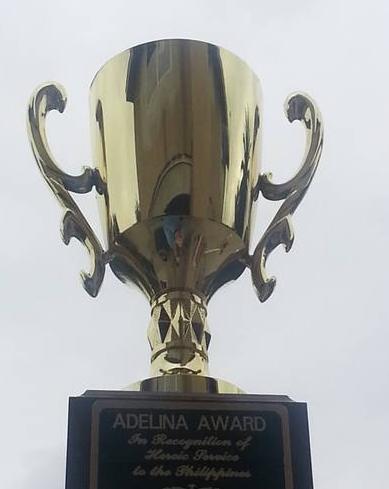The Adelina Award, one of the world’s most prestigious prizes for humanitarian causes, is now partnering with its winners to further their work, according to Remy Santos of the East Asia Media Group.
For several years the Award has been granted to individuals and groups who have achieved exemplary goals in disaster relief, education, research, environmentalism, cultural preservation, poverty alleviation, and public health.
Unlike other prizes, the Adelina Award is designed to be an active initiator of social change. That is, whenever possible, the sponsors choose to reward organizations and individuals whose efforts can and should be duplicated worldwide. To this end, Board members seek to publicize winners and their work through traditional media, social networks, blogs, websites, and word of mouth. They consider themselves partners of the honorees and will continue to further their work for a lifetime.
“We don’t see any need to forget about our winners after they receive the award”, says John Toomey, chair of the Selection Committee. “We carefully choose our honorees so that they are people and causes we want to work for forever. So receiving the prize is actually just the first step for us.”
Recent winners of the Adelina Award include:
Haruko Obokata, a Japanese researcher at the Riken Center for Developmental Biology in Kobe, Japan. She developed a simple but revolutionary process to create stimulus-triggered acquisition of pluripotency (STAP) cells, so that they can then develop into other kinds of cells.
Andeisha Farid, founder of AFCECO, the Afghan Children’s Education and Care Organization. She has built orphanages and shelters in several parts of Afghanistan and Pakistan which serve hundreds of children, many of them orphans. In her facilities boys and girls are equal, and learn tolerance for other racial and religious groups as well as the value of education.
Erion Elmasllari and his team at the Fraunhofer Institute in Sankt Augustin, Germany. They built a new electronic system for use during natural or man-made disasters, when prioritizing patient care is an imprtant goal. They use armbands with sensors which can be attached to each patient, and display the relative severity of their injuries. The sensors can track vital signs and submit them to an emergency control center, so that first responders can prioritize which patients need care first, and who should be first evacuated.
For information on the Adelina Award, write to adelinaaward@gmail.com.




